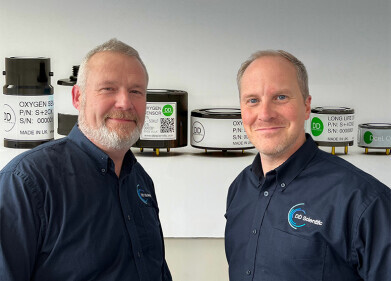Business News
Which Plastic Products Has England Banned?
Oct 16 2020
A ban on all plastic straws, drinks stirrers and cotton buds has come into effect in England from October 1st, 2020. Originally scheduled to begin in April 2020, the ban was brought forward by the Conservative government in a bid to address the riding tide of plastic pollution in the UK and make inroads into the British culture of throwing away disposable items after just a single use.
Environmental groups have welcomed the news but claim it does not go far enough in tackling the problem. They argue that the items prohibited by the latest legislation comprise only a small fraction of the total amount of plastic waste and that single-use items should be phased out entirely, pointing to the more ambitious measures put in place by countries such as Ireland and France in recent years.
A dirty habit
According to official figures released by the government, people in England consume a whopping 4.7 billion plastic straws, 1.8 billion cotton buds and 316 million drinks stirrers each year. While these items are only used for a few seconds or minutes before being thrown away, they persist in our environment for potentially hundreds of years, often finding their ways into our rivers and oceans.
Even when they do eventually break down, they can simply turn into much smaller particles of plastic, known as microplastics. These tiny particles can cause significant damage to life on both the land and in the sea, while the long-term effects of human exposure to airborne microplastics is still not fully known. As a result, campaigners have been calling for our consumption of plastic to be curbed for some time.
A step in the right direction
The ban prohibits both the sale and supply of straws, stirrers and cotton buds across England with immediate effect. There are rare exceptions – those with medical conditions, for example, can still obtain a straw to drink liquids in a hospital, bar or restaurant if they can demonstrate that they require one. However, the items will be banished from English society by and large.
The move follows a similar ban put in place by Scotland a year previous, when Nicola Sturgeon’s SNP government also outlawed the items in October 2019. While many solutions to the world’s growing plastic pollution conundrum focus on cleaning up the mess – such as the novel combination of forensic science and artificial intelligence – these measures seek to prevent it from occurring in the first place.
Not far enough
However, not everyone is convinced that the government ruling goes far enough. A representative of Friends of the Earth UK said that it falls to those in power to “do more to challenge our throwaway culture by forcing a shift away from all single-use materials in favour of reusable alternatives”. Ireland and France have both been held up as places where more ambitious initiatives have been implemented.
For example, France has targeted making all plastic packaging reusable, recyclable or 100% compostable by 2025, while Ireland has consistently surpassed all of the targets set by EU over recent years. In 2019, 33% of plastics and 68% of all materials on the Emerald Isle were recycled, some distance ahead of the EU’s benchmarks of 22.5% for plastic and 55% for all materials.
Digital Edition
IET 34.2 March 2024
April 2024
Gas Detection - Biogas batch fermentation system for laboratory use with automatic gas analysis in real time Water/Wastewater - Upcycling sensors for sustainable nature management - Prist...
View all digital editions
Events
Apr 22 2024 Hannover, Germany
Apr 22 2024 Marrakech, Morroco
Apr 23 2024 Kuala Lumpur, Malaysia
Apr 23 2024 Kintex, South Korea
Apr 23 2024 Edmonton, AB, Canada



















